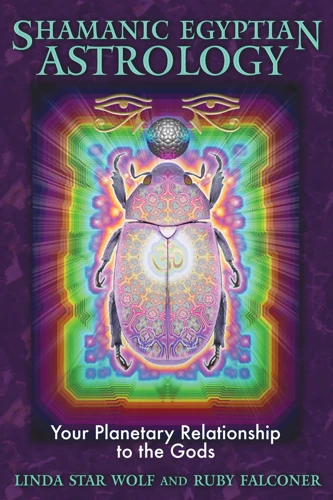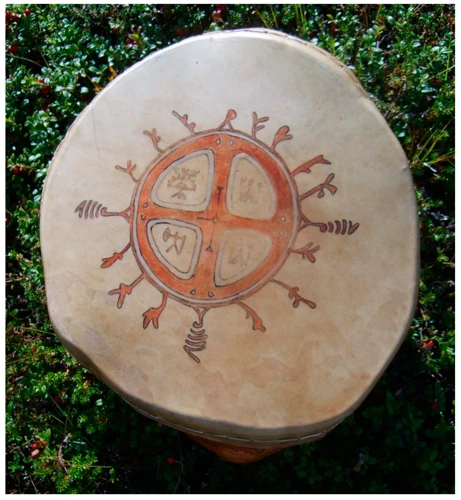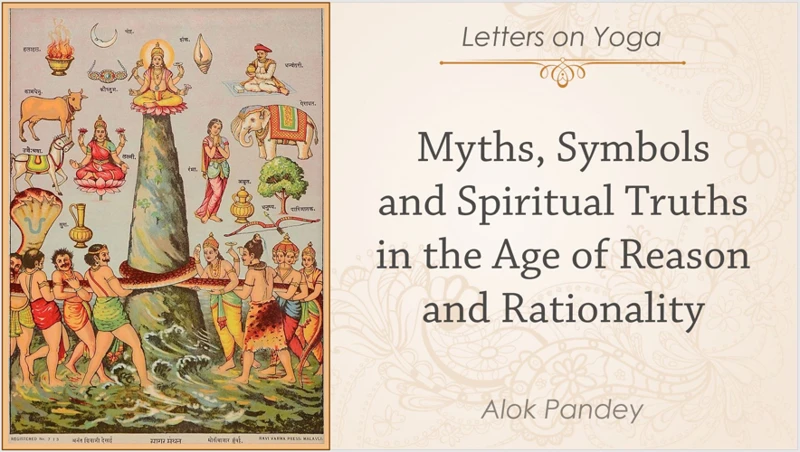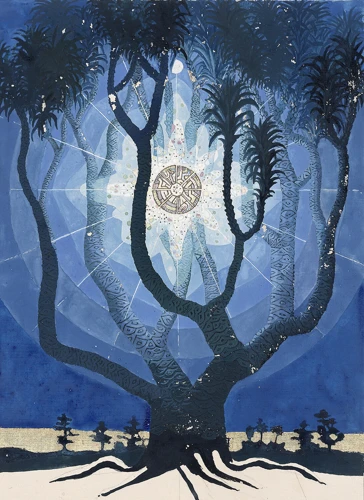As human beings, we have always been fascinated by the mysteries of the spiritual world. We seek to understand the forces that shape our lives and the world around us. Shamanism, one of the oldest spiritual practices on earth, offers a unique perspective on the spiritual realm. At the heart of shamanism lies mythology, a rich tapestry of stories that speak to the interconnections between the physical and spiritual worlds. In this article, we will explore the importance of mythology in shamanic cosmology, and how it shapes shamanic beliefs, practices, and healing. We will also discuss the connection between mythology and spirituality, and how mythology can be used as a tool for personal growth and self-discovery. So, let’s delve into the fascinating world of shamanic mythology and uncover its secrets.
Understanding Mythology in Shamanism

When exploring the practices of shamanism, it’s impossible to ignore the role that mythology plays in shaping the beliefs and customs of this ancient spiritual tradition. Mythology holds a special place in shamanic cosmology, serving as a powerful tool for understanding the spiritual world and connecting with the divine. But what exactly is mythology in shamanism, and how does it influence shamanic practitioners? Let’s delve deeper into this intriguing topic and unpack the significance of mythology in shamanism.
Mythology in Shamanic Cosmology
When it comes to shamanic cosmology, mythology plays a significant role. Mythology refers to the collection of stories, symbols, and beliefs that shape a culture’s understanding of the world, including the spiritual realm. In shamanic practices, mythology serves as a key element in understanding and connecting with the spirit realm.
Mythological elements in shamanic cosmology
Shamans often refer to their mythological beliefs as their cosmology – the way they understand and interpret the universe. This cosmology is often divided into three distinct realms: the upper world, middle world, and lower world. Each of these realms contains its own set of mythological elements, which play a crucial role in shamanic practice.
In the upper world, mythology often includes depictions of birds, angels, and other high-flying creatures. This realm is often associated with celestial beings and is seen as the realm of the gods.
The middle world, on the other hand, is the world in which we live. Mythology here often includes stories of humans and their relationships to the natural world around them. This realm is also associated with both positive and negative spirits, such as plant spirits or malevolent beings like demons.
The lower world is often depicted as a dark and mysterious realm, and is populated by spirits that are often regarded as dangerous or foreboding. Mythological elements here often include depictions of snakes, spiders, and other creatures that are associated with the underground.
The role of mythology in shamanic belief and practice
Mythology serves as a framework for understanding the shamanic world, and is often incorporated into shamanic ritual and ceremony. For example, shamanic journeys often involve the shaman travelling through different mythological realms to connect with spirits and gather information.
Mythology can also be used to help explain events in the physical world. For example, if a natural disaster occurs, a shaman may look to mythological stories and symbols to make sense of what has happened and why.
Mythology can help to strengthen a shaman’s connection to the spirit realm. By understanding the symbols and stories associated with different spiritual beings, the shaman is better able to communicate with and understand these entities.
Mythology is a crucial component of shamanic cosmology. It provides a framework for understanding the spiritual world, and helps shamans to connect with and communicate with spiritual entities. A deep understanding of mythology is necessary for anyone seeking to fully understand and engage in shamanic practices.
How Mythology Shapes Shamanic Beliefs and Practices
Mythology plays a significant role in shaping shamanic beliefs and practices. The stories and myths shared through generations provide a framework for understanding the spiritual world and the shaman’s place within it. The following points detail how mythology shapes shamanic beliefs and practices:
- Creation Stories: Creation stories often feature prominently in shamanic mythology, providing the foundation for understanding how the world came to be and the origin of all beings. These stories are told and retold, creating a shared understanding of the shaman’s relationship to the spiritual world and the natural world.
- Understanding Spirits: Myths and legends also give insight into the nature of spirits and how they interact with the physical world. For example, in some cultures, there are stories about spirits that must be appeased through offerings and rituals. Understanding these stories helps a shaman navigate the spiritual world and interact with these spirits in a respectful manner.
- Guidance on Practices: Mythological stories often provide guidance on shamanic practices. For example, stories may detail the proper way to conduct a ritual or offer advice on how to approach a particular spiritual issue. Myths and legends serve as a guide for shamanic practices, ensuring that traditions are passed down correctly and respectfully.
- Shared Cultural Values: In addition to providing guidance on shamanic practices, mythology also reflects shared cultural values. Myths may highlight the importance of community, the role of the natural world in daily life, or the significance of specific spiritual practices. These values are woven into the fabric of shamanic beliefs and practices, shaping how a shaman approaches their role in their community.
Mythology plays a crucial role in shaping shamanic beliefs and practices. Creation stories provide the foundation for understanding the spiritual world and a shaman’s place within it, while stories that detail how spirits interact with the physical world help them navigate and interact with these spirits properly. Myths also offer guidance on shamanic practices and reflect shared cultural values.
The Significance of Mythology in Shamanic Healing

Shamanic healing is a multifaceted practice that involves a deep understanding of the spiritual world. It relies heavily on mythology – the stories, symbols, and cultural beliefs that shape our understanding of the world around us. The role of mythology in shamanic healing is a complex and fascinating topic that has gained much attention in recent years. The importance of mythology in addressing spiritual issues and promoting healing is widely recognized in shamanic traditions across the world. In this section, we will explore how mythology shapes shamanic beliefs and practices, and how its significance can be seen in the role it plays in shamanic healing.
Role of Mythology in Shamanic Healing
In shamanic healing, mythology plays a crucial role in the process of understanding and addressing spiritual issues. Shamans use mythology to help individuals understand the root cause of their illness or ailment. They believe that every ailment or illness has a spiritual component, and it is the shaman’s role to identify that spiritual component and bring healing to the patient.
Here are some ways in which mythology aids healing in shamanism:
| Mythological Element | Role in Healing |
|---|---|
| Archetypes | Archetypes are universal patterns of behavior and personality that are present in all cultures. In shamanic healing, the shaman may use archetypes to guide the patient through a healing journey, helping them understand their behaviors and patterns of thought that may be contributing to their illness. |
| Creation Myths | Creation myths explain how the world was created and how it functions. In shamanic healing, the shaman may use creation myths to help the patient understand their place in the world and the connection they have with all things. This understanding can bring a sense of peace and harmony, which is essential for healing. |
| Spirit Animals | Spirit animals are animals that are believed to have certain qualities or traits that are helpful for the patient. In shamanic healing, the shaman may use spirit animals to guide the patient and help them develop qualities such as strength, courage, and wisdom that are necessary for healing. |
| Mythical Creatures | Mythical creatures such as dragons or unicorns are often used in shamanic healing. These creatures represent the unknown and can lead the patient to new discoveries about themselves, their environment, and the world they live in. They can also inspire the patient to embrace their creativity and imagination, which can be important for the healing process. |
By incorporating mythological elements, shamans can help patients better understand the spiritual dimension of their ailment or illness. Through this understanding, the patient is empowered to take the necessary steps towards healing, which may include changes in thought patterns, lifestyle, and behavior. Ultimately, shamanic healing aims to restore balance and harmony between the patient and the spiritual world, and mythology plays a key role in achieving this goal.
Importance of Mythology in Addressing Spiritual Issues
Mythology plays a crucial role in addressing spiritual issues within shamanic practice. Through the use of powerful archetypes and symbols, mythology can help individuals understand and navigate complex spiritual challenges. Here are a few reasons why mythology is important in addressing spiritual issues:
- Provides a framework for understanding spiritual experiences: Many spiritual experiences are difficult to put into words or understand logically. Mythology provides a framework for interpreting these experiences and making sense of them.
- Offers guidance for spiritual growth: Mythical stories often contain lessons and guidance for personal growth and spiritual development. For example, the story of the hero’s journey is a common mythological theme that can be used as a guide for individuals undergoing their own personal transformation.
- Helps us connect with the divine: Mythology provides a way for us to connect with the divine and understand our place within the larger spiritual cosmos. By exploring and connecting with different mythological traditions, we can deepen our spiritual connection and expand our understanding of the divine.
- Allows for deeper exploration of spiritual themes: Many spiritual themes, such as death and rebirth, can be difficult to fully understand or integrate into our lives. Mythology provides a way for us to explore these themes more deeply and come to a deeper understanding of their significance in our lives.
Mythology is an essential tool for addressing spiritual issues within shamanic practice. Its power lies in its ability to provide guidance, deepen our understanding of the divine, and offer a framework for understanding complex spiritual experiences. By incorporating mythology into our spiritual practice, we can open ourselves up to a deeper and more fulfilling spiritual life.
The Connection Between Mythology and Spirituality

As we continue exploring the relationship between shamanism and mythology, we cannot ignore the significant connection between mythology and spirituality. It is through myths and stories that spiritual traditions and values are passed down from generation to generation. But what is the nature of this connection? How does mythology relate to spirituality? And why is it important to understand the symbolism within mythological stories in order to deepen our spiritual understanding? Let’s delve further into these questions and unravel the perplexing interplay of mythology and spirituality.
How Mythology Relates to Spiritual Traditions and Values
Mythology is deeply intertwined with spiritual traditions and values across various cultures. It is believed that mythology played a significant role in shaping the spiritual beliefs, practices, and rituals of ancient cultures. Mythological stories and symbols depict the intricate connection between human beings, nature, and the divine. These stories serve as a source of inspiration, guidance, and wisdom for people seeking to understand their place in the world and connect with the divine.
Mythology embodies the collective beliefs and experiences of a community, and provides a framework for understanding the spiritual dimension of human existence. It helps individuals to conceptualize the nature of the divine, the afterlife, and the moral and ethical values that guide human conduct. In this way, mythology serves as a cultural mirror that reflects the values, norms, and beliefs of a society.
Mythology helps individuals to develop a deeper understanding of the world around them. Mythical stories and symbols often represent complex ideas and concepts that would be difficult to grasp otherwise. For example, in Greek mythology, the story of Icarus represents the danger of hubris or excessive pride. The symbol of the phoenix in Egyptian mythology represents rebirth and regeneration. These examples demonstrate how mythology can help individuals understand abstract concepts that are difficult to grasp in concrete terms.
Mythology can also serve as a source of comfort and healing. The stories and symbols within mythology can help individuals find meaning and purpose in their lives. They can be a source of hope and inspiration during difficult times, and can offer a sense of connection and belonging to something greater than oneself.
Mythology is a crucial component of spiritual traditions and values. It provides a framework for individuals to understand their place in the world, conceptualize the divine and abstract concepts, and find meaning and purpose in their lives. Mythology embodies the collective wisdom and experience of a community, and serves as a cultural mirror that reflects the values, norms, and beliefs of a society.
The Importance of Understanding Mythological Symbolism
Understanding mythological symbolism is essential to unlocking the deeper meanings and messages that myths and stories hold. Symbolism is the use of symbols to represent ideas or qualities, and in mythology, symbols often represent abstract concepts or spiritual states. It is through the interpretation of these symbols that the true significance of the myths can be revealed.
Table: Example of Mythological Symbolism
| Symbol | Mythological Context | Meaning/Interpretation |
|---|---|---|
| Snake | Mayan mythology | Wisdom, renewal, rebirth |
| Phoenix | Egyptian mythology | Renewal, resurrection, eternal life |
| Lotus flower | Hindu mythology | Purity, enlightenment, spiritual awakening |
| Tree | Norse mythology | Connection between worlds, fertility, stability |
As shown in the table above, different cultures use different symbols to represent similar ideas based on their unique mythological traditions. Understanding these symbols and their meanings can assist in understanding the depths of cultural and spiritual beliefs.
In shamanic cosmology, symbols play a crucial role in spiritual practices and beliefs. For example, Shamans may use symbolic objects, such as crystals or feathers, in their healing ceremonies. The interpretation of symbols observed during shamanic journeys may reveal the underlying spiritual or emotional state of the individual seeking guidance.
Understanding mythological symbolism is integral not only to understanding the nuances of different cultural and spiritual beliefs but also in unlocking the depth of messages and meanings within myths and stories. The interpretation of symbols can be used within spiritual practices or as a tool for personal growth and self-discovery.
Mythology as a Tool for Personal Growth
As we continue to explore the importance of mythology in shamanic cosmology, one cannot overlook its significance in personal growth. The myths and stories shared within shamanic traditions offer us a unique perspective on the world and ourselves. They provide a lens through which we can understand and navigate the complexities of life. Using mythology as a tool for personal growth can be a transformative experience, allowing us to delve deeper into our own psyche and connect with our true nature. Let us explore how these ancient tales can guide us on the path to self-discovery and self-actualization.
The Role of Mythology in Self-Discovery and Self-Actualization
Mythology plays a significant role in the process of self-discovery and self-actualization. By exploring the myths and stories of different cultures, individuals can gain insights into their own personal beliefs, values, and identity. Here are a few ways in which mythology can aid in the journey of self-discovery:
- Providing a Framework for Understanding Personal Experiences: Myths and stories can serve as a framework for understanding personal experiences. By examining the archetypal elements present in myths, individuals can begin to understand their own personal journeys and the challenges they face.
- Encouraging Self-Reflection: Myths can also encourage self-reflection by prompting individuals to question their beliefs and assumptions about the world around them. By examining these beliefs and assumptions, individuals can gain a deeper understanding of themselves and the world in which they live.
- Inspiring Creativity and Imagination: Myths and stories are a rich source of inspiration for creativity and imagination. By exploring the symbolism and imagery present in myths, individuals can tap into their own creativity and use it to express their own personal truths and experiences.
Additionally, mythology can serve as a guide during times of personal crisis or transition. By examining the stories of individuals who have faced similar challenges, individuals can gain strength and courage to navigate their own difficult times. Through this process, individuals can find meaning and purpose in their struggles and emerge from these experiences stronger and more self-aware. Mythology can be a valuable tool for personal growth and self-discovery, offering insights into the human experience and prompting individuals to explore and embrace their own unique identities.
Using Mythology as a Guide in Times of Crisis or Transition
Mythology can be an invaluable tool for individuals going through difficult times. In times of crisis or transition, people often experience feelings of confusion, fear, and uncertainty. However, mythology can provide guidance and inspiration. Here are some ways to use mythology as a guide in difficult times:
1. Finding Inspiration: Myths can provide inspiration by offering stories of characters who faced challenges and overcame them. These stories can help individuals find the courage and strength to face their own challenges. For example, the story of Hercules, who faced a series of seemingly impossible tasks, can inspire people to overcome their own difficulties.
2. Seeking Guidance: Myths can also offer guidance by providing examples of how characters overcame adversity. These stories can help individuals navigate difficult decisions or situations. For example, the story of Odysseus, who faced numerous obstacles on his journey home, can offer guidance to individuals who are navigating difficult transitions or setbacks.
3. Providing Perspective: Myths can also provide perspective by reminding individuals that they are part of a larger, interconnected world. This can help individuals put their own struggles in context and find meaning in their experiences. For example, the Hindu myth of the Wheel of Samsara, which depicts the cycles of birth and rebirth, can help individuals see the interconnectedness of all life.
4. Connecting with Others: Finally, myths can help individuals connect with others who are going through similar challenges. Shared myths can provide a sense of community and belonging, and can help individuals feel less alone in their struggles. For example, the Greek myth of Persephone, who was taken to the underworld and returned to the world above, can provide a sense of connection to individuals who have experienced trauma or loss.
Mythology can be a powerful tool for individuals going through difficult times. By providing inspiration, guidance, perspective, and connection, myths can help individuals navigate crises and transitions, and find meaning in their experiences.
Conclusion
As we can see, mythology plays a significant role in shamanic cosmology and spirituality. It shapes beliefs and practices, and serves as a guide for personal growth and healing. Through understanding mythological symbolism, individuals can gain a deeper connection to the spiritual world and explore the depths of their inner selves.
Shamanic rituals and practices often rely on mythology as a means of connecting with spiritual energies and entities. By tapping into these mythological stories and symbols, individuals can awaken an inner wisdom that can guide them on their personal and spiritual journeys.
Furthermore, mythology can be a powerful tool for healing, as it provides a framework for addressing spiritual issues and emotional wounds. By recognizing the archetypal themes and symbols within mythical stories, individuals can gain insight into their own experiences and emotions, and begin to work through these issues in a more constructive and empowered way.
In addition, the study of mythology offers individuals the opportunity to connect with a larger cultural and spiritual tradition, and to explore the commonalities and differences between spiritual beliefs and practices across cultures and time periods. This can deepen our understanding of the human experience and our place within the larger cosmic order.
Overall, the importance of mythology in shamanic cosmology cannot be overstated. It serves as a bridge between the mundane and the spiritual, and offers a rich tapestry of symbols, stories, and archetypes that can guide us on our path towards greater spiritual awareness and personal transformation. By embracing the power of mythology, we can gain a deeper connection to the spiritual world and unlock our true potential as spiritual beings.
Frequently Asked Questions
What is the definition of mythology in shamanism?
Mythology in shamanism refers to the collection of sacred stories and beliefs that provide insight into the spiritual world and the ways of the shamanic cosmos.
How does mythology shape shamanic beliefs and practices?
Mythology provides a framework for understanding the spiritual realm and the shamanic world. It also helps to define the roles and practices of shamans and their connection to the spirit world.
What is the role of mythology in shamanic healing?
Mythology plays a crucial role in shamanic healing by providing insight into the spiritual causes of illness and suffering. It also provides a framework for understanding the healing process and the role of the shaman in facilitating healing.
Why is mythology important in addressing spiritual issues?
Mythology provides a lens through which we can view and understand spiritual issues. It can help us make sense of our experiences and provide guidance in navigating spiritual challenges.
How does mythology relate to spiritual traditions and values?
Mythology is an integral part of many spiritual traditions and reflects the values and beliefs of the culture from which it originates. It provides a way to understand and connect with the essence of these traditions.
What is the significance of understanding mythological symbolism?
Understanding mythological symbolism can provide insight into the deeper meaning of spiritual practices and beliefs. It can also help us to understand the ways in which these beliefs and practices relate to our own inner experiences.
What is the role of mythology in self-discovery and self-actualization?
Mythology can serve as a tool for self-discovery and self-actualization by providing archetypal frameworks for understanding the human experience. It can also provide guidance and inspiration in navigating life’s challenges and transitions.
How can mythology be used as a guide in times of crisis or transition?
Mythology can be used as a source of inspiration and guidance during times of crisis or transition. It can help us to connect with our inner strength and resilience and provide hope and direction.
How does mythology impact our understanding of the natural world?
Mythology provides a framework for understanding our place in the natural world and our connection to the greater web of life. It can provide insight into the ways in which our actions impact the natural world and the importance of living in harmony with the earth.
What is the importance of continuing to study and engage with mythology?
Continuing to study and engage with mythology allows us to deepen our understanding of the spiritual realm and our connection to it. It can also provide a way to connect with the deeper aspects of ourselves and the greater mysteries of life.








